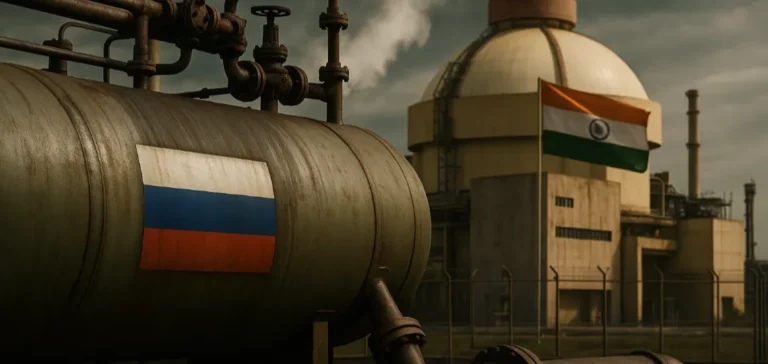Russia maintains its exports of crude oil, thermal and coking coal, as well as refined products to India, while identifying new opportunities in the liquefied natural gas (LNG) sector. These statements were made by Denis Manturov, First Deputy Prime Minister of the Russian Federation, during a meeting of the Russian-Indian intergovernmental commission.
In addition to these deliveries, several joint investment projects are underway between the two countries, focusing on the extraction and processing of hydrocarbons. These initiatives illustrate a deepening of bilateral energy relations, supported by a strategic diversification objective in a sector vital to both economies.
Focus on liquefied natural gas and civil nuclear power
According to Denis Manturov, Russia sees growth potential in LNG exports to India, complementing existing oil flows. This strategy comes as Russian liquefaction facilities seek to increase their share in Asian markets.
Furthermore, Russian-Indian cooperation also extends to civil nuclear energy. Building on the ongoing Kudankulam Nuclear Power Plant project, both governments are considering expanding their partnership in this field, although the precise framework of this cooperation remains to be defined at this stage.
Geopolitical context and US tariff pressure
The strengthening of energy relations between Russia and India comes as New Delhi faces growing criticism from the United States. Washington recently raised import duties from 25% to 50% on certain goods from India, in response to its continued purchases of Russian oil.
This tariff measure is part of a tense climate, marked by statements from former US President Donald Trump, who criticized India for its historical dependence on Russia in defense and energy. India responded by denouncing what it described as unfounded attacks, stressing the importance of securing its national energy supply.
India’s strategic weight in global flows
India ranks as the world’s third-largest oil consumer and remains heavily dependent on imports to meet its energy needs. This structural reliance guides its diplomatic and commercial choices, particularly in the context of its relations with Russia, a strategic supplier in the Asian market.
The growing interconnection between the two countries in the energy sector raises the question of their positioning in the face of external pressures, notably from the United States and the European Union. The multiplication of joint projects could strengthen the resilience of these exchanges in the medium term, while reshaping regional balances in the global energy market.






















